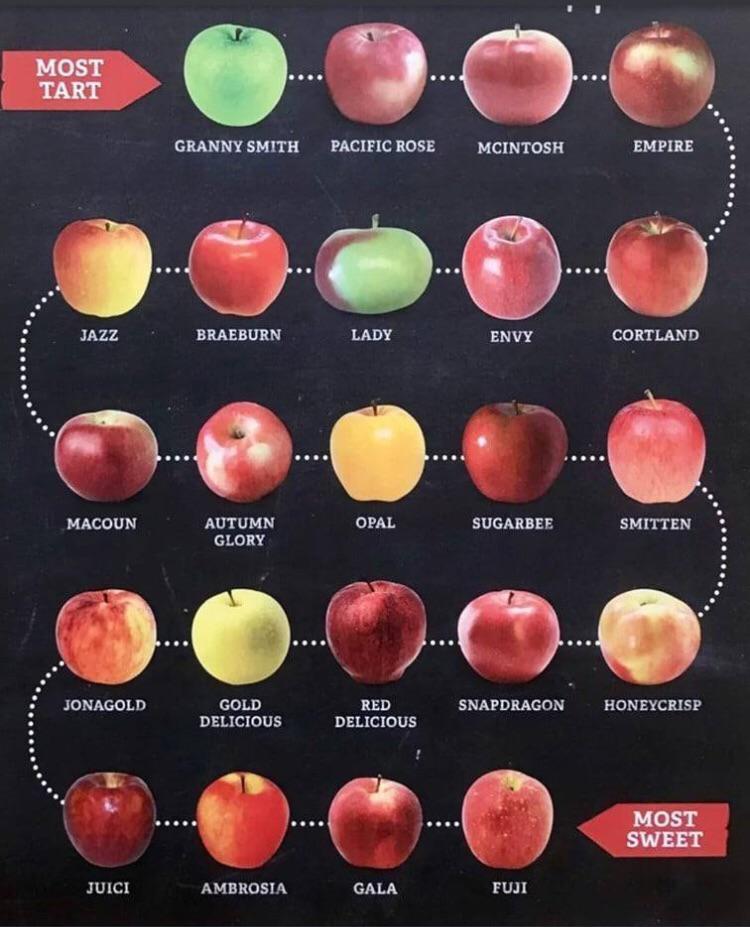The U.S. Apple Association said inventories as of December 2023 were up about 33% above this same...
Branded Apples Are Gaining Traction with Retailers, Growers

Retailers and apple growers increasingly are turning to branded apples — also known as managed or club varieties — to offer consumers what they consider to be a superior eating experience.
The Pink Lady was the first branded apple, said Bill Dodd, President of the Midwest Apple Improvement Association, Oberlin, Ohio. Also known as Cripps Pink, the variety was released in Australia in 1973.
Today there are several dozen branded apples available in the U.S. that may account for about 15% to 20% of apple sales.
“The goal of a managed variety is to find that sweet spot where everybody is making out,” Dodd said. “The money is trickling down to the grower.”
Growers must pay licensing fees to produce managed varieties, so production is confined to a limited number of packinghouses.
“The quality can be controlled a little bit better, and marketing can be controlled,” Dodd said. “Your expectation is that it’s going to be a superior apple to some of the other varieties.”
“Sparta, Michigan-based Applewood Fresh Growers LLC is the leading marketer-shipper-grower-packer for branded varieties offered in Michigan,” said Shelby Babcock, Marketing and Sales Specialist. “We have Rave, SweeTango, Kiku, Kanzi and EverCrisp alongside New York-grown varieties SnapDragon and RubyFrost in collaboration with Lockport, New York-based Crunch Time Growers.”
“Branded varieties offer new and unique choices for customers,” said Jim Swindeman, grower and owner of Applewood Orchards Inc., Deerfield, Michigan. “They also provide a premium eating experience over the core varieties.” When selecting branded apples to market, Applewood looks for varieties that will increase sales, have better returns for growers and give retailers premium options to best compete in the produce section.
Swindeman said Applewood Orchards is beginning to pull out older orchards to focus on high-density planting with newer trees and increasing its volume per acre. “There are a lot of upfront costs associated with apple growing, so this is not a decision that can be made overnight,” he said.
Sparta, Michigan-based Riveridge Produce Marketing Inc. kicked off its harvest the third week of August, three to four days ahead of last year, according to Trish Taylor, Marketing Manager. The company offers nearly 20 kinds of apples.
“About 5% of the apples from Traverse City, Michigan-based North Bay Produce are club varieties,” said Ken Korson, Apple and Asparagus Category Manager. “Some club varieties, like Pink Lady, are relatively simple to get into, but others, like Cosmic Crisp, which is exclusive to Washington growers, are more difficult.” Ambrosia was once a branded variety, but he said that’s no longer the case. Korson believes Ambrosia will become a more popular variety now that more trees can be planted.
According to Korson, it’s hard to predict which branded apples will be successful. “The really good ones make it,” he said. “There are so many that the ones that are marginal never make it. Inflation and the higher cost of branded apples may be a concern. It may hurt them a little bit with people watching their dollars,” said Korson.
Taylor shared their company had a couple of past managed varieties, like Pink Lady and Ambrosia, but no longer offers those varieties. “We’ve concentrated on developing our core varieties and establishing our orchards to produce quality and volume of consumer favorites,” she said. “Also, we are focused on trialing organic at the commercial scale, which is new for Michigan.” The company cycles out older strains or lighter-color varieties. They plant strains with better color and qualities and focus on newer varieties and strains that can provide a better return per acre with the flavors and appearance retailers and consumers demand.
“There are risks in any new endeavor,” Dodd said. “It’s probably easier to pick out what you’re going to take out than what you’re going to put in its place,” he said. But according to Dodd, branded apples aren’t going away. “The holy grail for us is to increase apple consumption. To do that, we have to create better eating experiences. Some of the new varieties will fail, and others will succeed. Ultimately, the consumer is going to be better off because they’re going to have better eating experiences,” said Dodd.
EDITOR’S TAKE:
Consumer acceptance is the name of the game. Branding apples to improve consumer purchases is a great idea. Separating into brands versus merely marketing “apples” has made a difference. The more educated consumers become about the taste, flavor and texture differences of the various brands, they can then make better informed decisions! Let’s face it, typically a branded product commands a premium and puts more money back into the pocket of the producer. But whether you prefer a branded apple or simply an apple ripe from the tree – fall is apple season – so enjoy! Speaking of brands – want to make yours stand out from the crowd? Use your Certified Ag Dealership credentials, and AgPack®, as well as putting your inventory on AgTruckTrader.com. Then when the farmers/ranchers show up at your dealership, complete the sale with the best service and parts department in the truck industry!








